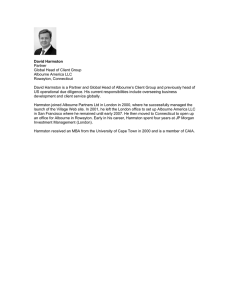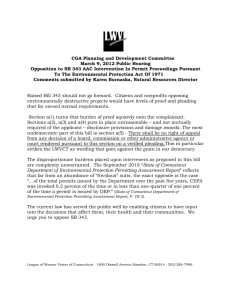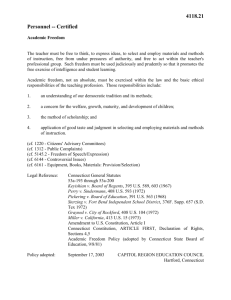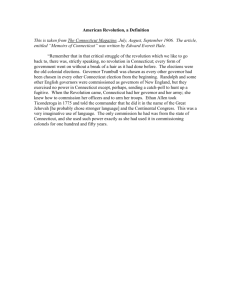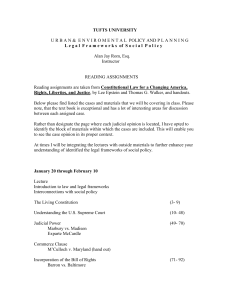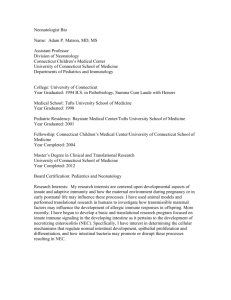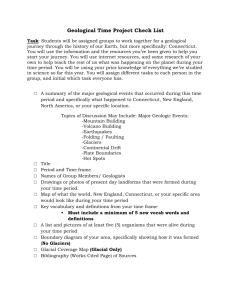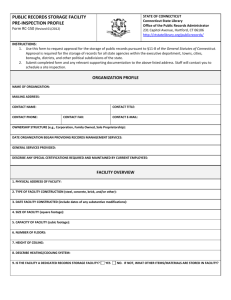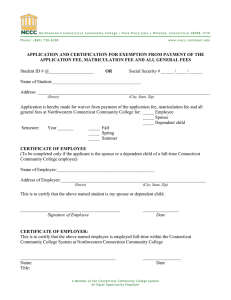Connecticut Commission on Children Parent Leadership Training
advertisement
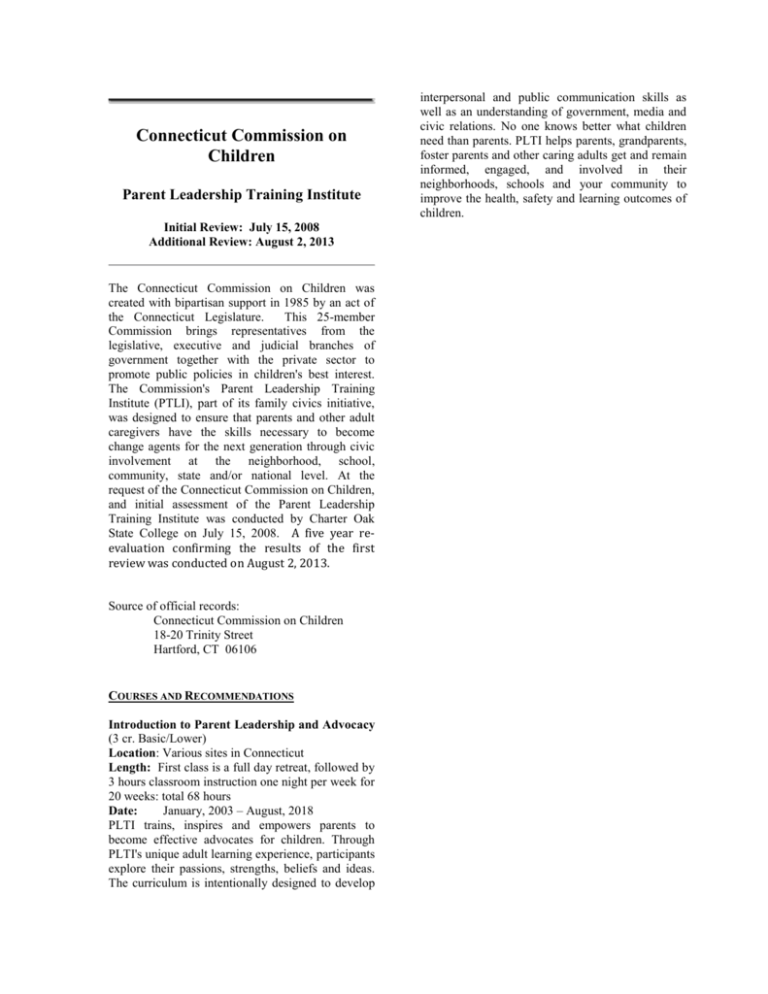
Connecticut Commission on Children Parent Leadership Training Institute Initial Review: July 15, 2008 Additional Review: August 2, 2013 The Connecticut Commission on Children was created with bipartisan support in 1985 by an act of the Connecticut Legislature. This 25-member Commission brings representatives from the legislative, executive and judicial branches of government together with the private sector to promote public policies in children's best interest. The Commission's Parent Leadership Training Institute (PTLI), part of its family civics initiative, was designed to ensure that parents and other adult caregivers have the skills necessary to become change agents for the next generation through civic involvement at the neighborhood, school, community, state and/or national level. At the request of the Connecticut Commission on Children, and initial assessment of the Parent Leadership Training Institute was conducted by Charter Oak State College on July 15, 2008. A five year reevaluation confirming the results of the first review was conducted on August 2, 2013. Source of official records: Connecticut Commission on Children 18-20 Trinity Street Hartford, CT 06106 COURSES AND RECOMMENDATIONS Introduction to Parent Leadership and Advocacy (3 cr. Basic/Lower) Location: Various sites in Connecticut Length: First class is a full day retreat, followed by 3 hours classroom instruction one night per week for 20 weeks: total 68 hours Date: January, 2003 – August, 2018 PLTI trains, inspires and empowers parents to become effective advocates for children. Through PLTI's unique adult learning experience, participants explore their passions, strengths, beliefs and ideas. The curriculum is intentionally designed to develop interpersonal and public communication skills as well as an understanding of government, media and civic relations. No one knows better what children need than parents. PLTI helps parents, grandparents, foster parents and other caring adults get and remain informed, engaged, and involved in their neighborhoods, schools and your community to improve the health, safety and learning outcomes of children.


